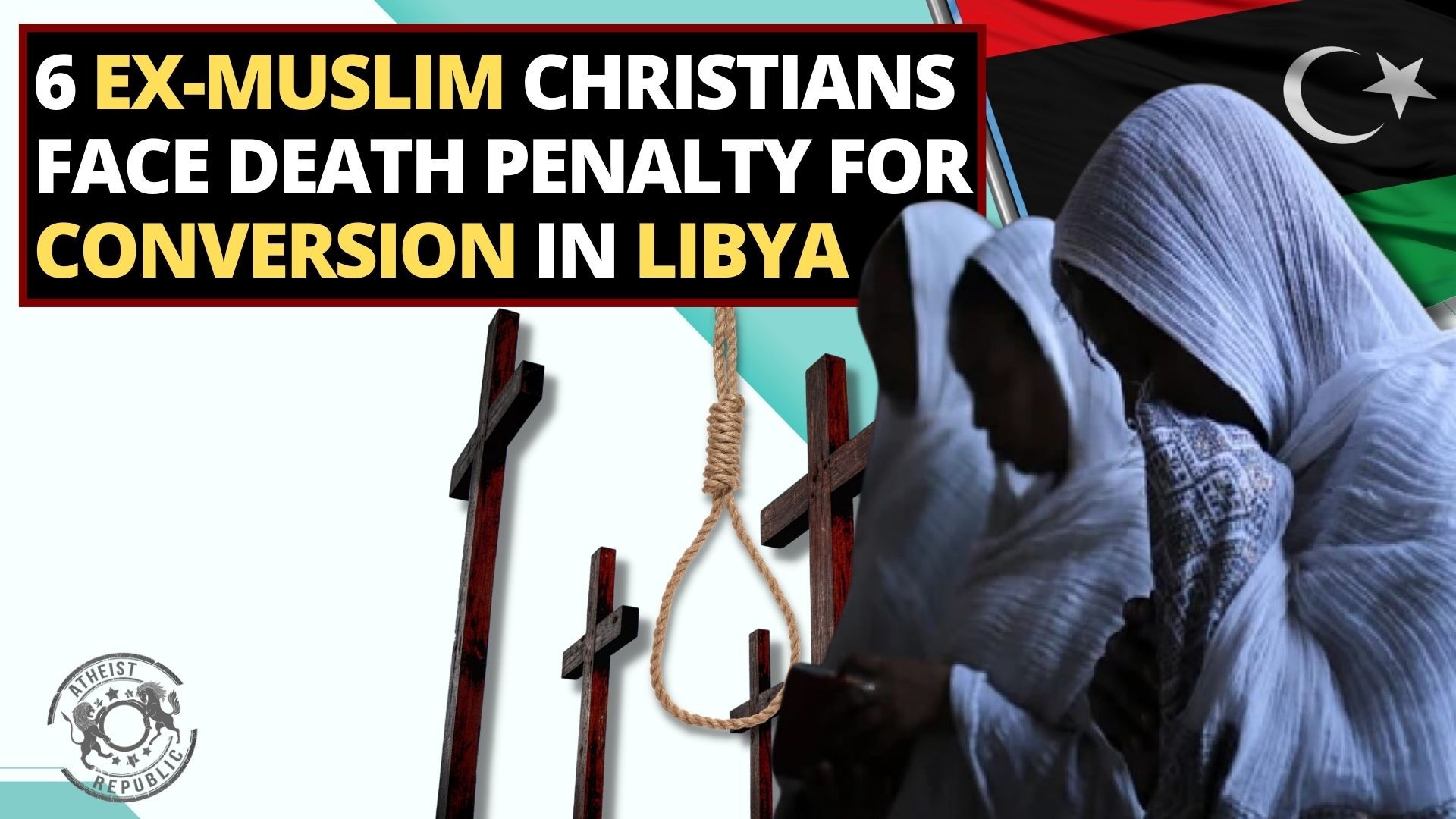
Human rights activists say Libyan authorities arrested six Libyans last March for converting to Christianity and proselytizing. They said the Libyan Christians were accused of violating laws being used increasingly to stifle human rights organizations and civil societies.
Six Libyans face death penalty for converting to Christianity https://t.co/jaNgBvVc1P
— The Guardian (@guardian) May 3, 2023
Some women and men detained by the Libyan security forces came from the Amazigh or Berbers, one of the country’s minority ethnic groups. An American was also arrested by the Internal Security Agency last month but was freed and thought to have left the country.
The six arrested Libyan Christians were accused of violating Article 207 of the country’s Penal Code, which penalizes any attempts to spread views that “alter fundamental constitutional principles or the fundamental structures of the social order” or overthrow the government as well as anyone who owns books, leaflets, drawings, slogans, or “any other items” that promote a such cause.
In a statement, the ISA said they arrested the ex-Muslim Christians to “stop an organized gang action aiming to solicit and to make people leave Islam.” A lawyer for one of the detainees said their families were informed of their state when the agency posted videos of their confessions online.
One of these videos showed Seyfao Madi, an engineer and father of one child. In his confessions, he told authorities he converted to Christianity after meeting a Christian from the US in 2016, and they had discussions before being baptized and converted to the faith in 2017. He also said he joined “a group of Libyans and foreigners inside Libya calling and circulating for Christianity.” A lawyer, who asked for anonymity, also said he renounced his Christian faith under torture.
Humanists International said Libya’s laws remain primarily based on religion, even after Muammar Gaddafi was deposed and killed in 2011. While an interim constitution was written after his death and guaranteed freedom of religion for non-Muslims, this charter was suspended due to constant infighting between the internationally-recognized Islamist government in Tripoli and a secularist government in Tobruk.
Noura Eljerbi, a human rights activist, said, “There has been an increase in the usage of Article 207 against civil society activists and international organizations in Libya over the last year.” She was forced into exile after receiving death threats due to her work.
“Even now I keep being threatened for only defending freedom of beliefs. Society doesn’t accept discussions about freedom of beliefs.” Eljerbi said. “Before the arrest of those people, there was a fierce campaign against them on social media led by former regime supporters.”
Like her, many human rights activists in Libya have left the country, while those who stayed had to work undercover for their safety. However, others like Salwa Bugaighis were killed either by security forces or unknown assailants.
Last year, the ISA arrested seven activists for alleged atheism. While two of them were released, the remaining five remain imprisoned.
